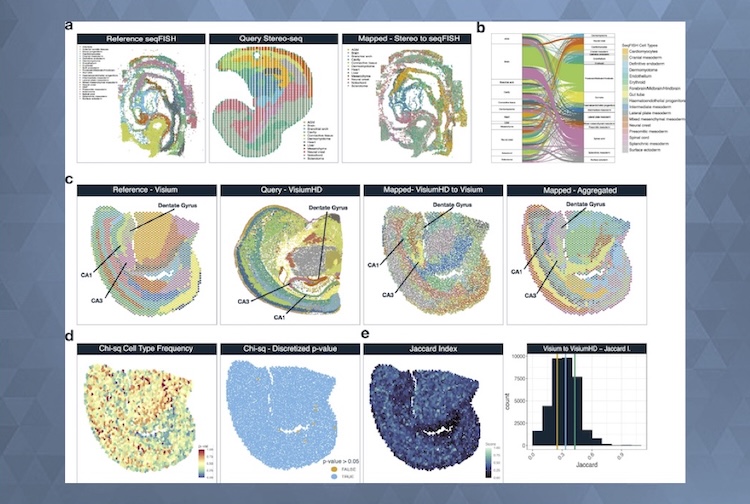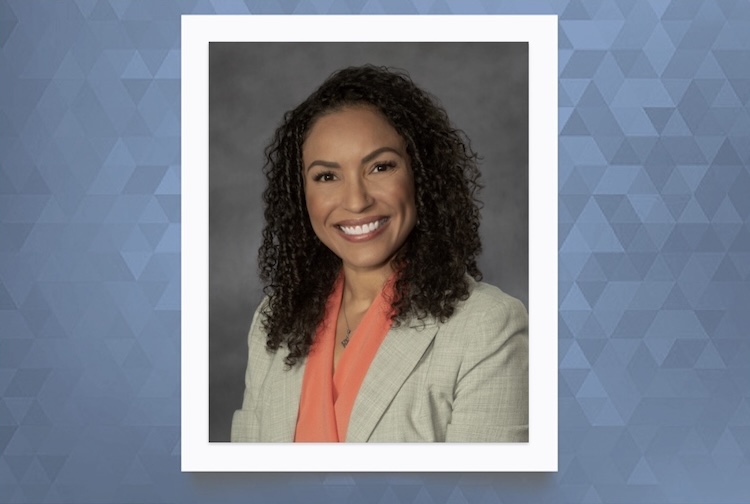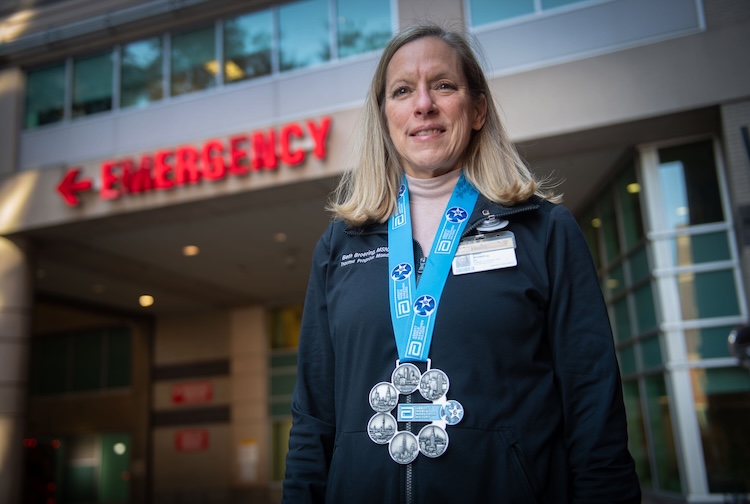AI cell-mapping tool provides multi-layered view of cancer behavior, VCU researchers say
The AI program, called Vesalius, identifies what genes are active in cancer cells and how they interact with neighboring cells in the body.
August 29, 2025 A team of researchers at VCU Massey Comprehensive Cancer Center created a computational tool called Vesalius to better understand how cancer cells and their surrounding cells influence one another, which could help clinicians more effectively treat different types of cancer. (Martin, P.C.N., Wang, W., Kim, H. et al. Nat Commun 16, 7814 (2025)
A team of researchers at VCU Massey Comprehensive Cancer Center created a computational tool called Vesalius to better understand how cancer cells and their surrounding cells influence one another, which could help clinicians more effectively treat different types of cancer. (Martin, P.C.N., Wang, W., Kim, H. et al. Nat Commun 16, 7814 (2025)
By Tatiana Del Valle
Researchers at VCU Massey Comprehensive Cancer Center developed a new tool that can help clinicians understand the complex relationships between cancer cells and their surrounding cells.
Findings from a study recently published in Nature Communications show that the artificial intelligence (AI) cell-mapping program Vesalius could identify predictive biomarkers for multiple hard-to-treat cancers and inform individualized treatment options based on a patient’s disease and genes.
A research team led by Rajan Gogna, Ph.D., a member of Massey’s Developmental Therapeutics research program and an assistant professor in the VCU School of Medicine’s Department of Cellular, Molecular and Genetic Medicine, were driven by the goal of interpreting extensive amounts of data in a meaningful way.
While other computational cell-mapping tools have been used in cancer research for many years, Vesalius is the first that reveals which genes are active in each individual cell.
“With Vesalius, we are using artificial intelligence to find the spatial patterns in the whole tissue architecture among patients who respond to therapy and those who don’t,” Gogna said. “It’s creating a territory of informational domain.”
Named after Andreas Vesalius, the sixteenth-century Belgian anatomist and physician who studied human anatomy at the preliminary stages, this tool sets out to understand the physiology of tissue architecture from a more advanced perspective.
The research team’s approach is to analyze the whole tissue rather than individual parts due to the dormant nature of cancer cells. Since cancer cells often live alongside surrounding cells for many years in patients, they will inevitably influence each other.
“Take a husband and wife who have been married for 20 years. If you are meeting with either one of them individually, can you see the influence of the other partner somewhere in your interaction?” Gogna said. “A fibroblast — a type of cell involved in the production of connective tissue — is not only interacting with a cancer cell. These cells are sitting with their neighbors from the time the cancer originates. So, to treat them as individual cells is wrong. They are influenced partners.”
So far, Vesalius has primarily been tested on breast, colon and ovarian cancers, but there is potential to apply it to all cancers in the future. As information is gathered on a broader scale, the AI model will continue to train itself and help clinicians tweak their protocols.
“Artificial Intelligence like Vesalius will have a significant impact on the future of cancer research and patient outcomes because of the scientific foresight of researchers like Dr. Rajan Gogna,” said Robert A. Winn, M.D., director and Lipman Chair in Oncology at Massey and co-author of this research. “Massey continues to close the gap with tools like Vesalius leading to better health outcomes and reducing the cancer burden for all.”
Vesalius is among the latest AI models developed by researchers at VCU. Another Massey project uses the technology to better diagnose diseases and get patients personalized treatments faster. A VCU-led global research team also studied how to use AI to predict the risk of death for hospitalized cirrhosis patients.
Moving forward, the researchers plan to test Vesalius on larger datasets and collaborate with multiple institutions. They hope to expand their work to investigate why certain cancers are more fatal, such as pancreatic cancer.
Additional VCU collaborators on this research include Esha Madan, Ph.D., member of the Cancer Biology research program at Massey and an assistant professor in VCU’s Department of Surgery, and Arturo P. Saavedra, M.D., Ph.D., MBA, dean of VCU’s School of Medicine. Patrick C. Martin and Kyoung Jao Won, Ph.D., of Cedars-Sinai Medical Center, contributed significantly to this work.
A version of this story was originally published by VCU Massey Comprehensive Cancer Center.




